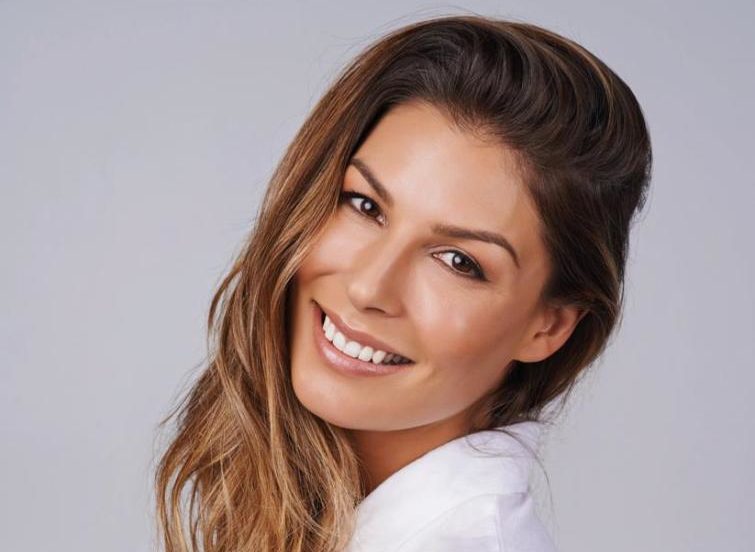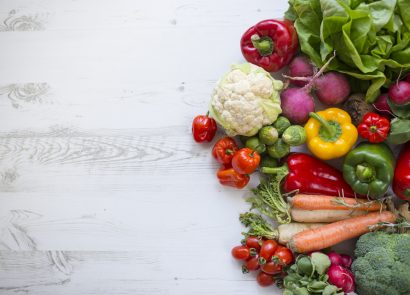While there are some skincare steps that should be followed at every age (think: staying hydrated by drinking enough water and using SPF everyday, even in winter), it’s vital to evolve our routines as we get older and as our bodies and skin change.
However, there are so many products out there, it can be confusing to know what we should be using and when. That’s why we’ve enlisted the help of top skincare experts to breakdown what we need to apply, decade by decade. Here’s to beautiful looking skin!
In your 30s…
Your skin issue: Lower collagen levels
“Collagen levels (the magic protein that creates cushioning in our skin) start to deplete in our mid-20s – only by about one percent a year, but enough for the visible signs of ageing, such as fine lines and wrinkles, to start to show,” explains skincare expert Danielle Hudson, brand ambassador of BeGlow (beglow.com). “Of course, ageing is only a part of that process, as lifestyle and environmental factors, such as UV exposure, diet, pollution, smoking and alcohol consumption also have a significant impact.” So, what can you do? “I’d recommend that, for each decade above 30, skin products should contain an increasing percentage of collagen feeding ingredients,” says Isha Panesar, founder of Isha Cosmetics (ishacosmeticsltd.com).
Anything else?
“Many people find they begin to experience skin problems, such as rosacea, dark circles, skin pigmentation, increased skin sensitivity, stretch marks or hormonal breakouts in their 30s,” Isha tells us. “It’s advisable therefore that, if you haven’t already incorporated a skincare regime into your daily routine, to start at this age in order to slow down the skin’s ageing process and reduce those lines, wrinkles and pigmentation. If you neglected your skin in your 20s, for example by not cleansing properly before bed, it’s vital that you address any problems at this relatively early stage. Your regime should be to cleanse, tone, exfoliate and then apply serums and creams, including retinol, hyaluronic acid and vitamin C.
Those with normal or combination skin should aim to exfoliate two to three times per week, but if you have sensitive skin, a weekly exfoliation is sufficient. For optimal results, try adding moisture-enriched face masks twice weekly to maintain the appearance of naturally youthful skin. Creams should be applied twice daily.”
What should I avoid?
“So often, people in their 30s immediately opt for more invasive treatments, such as derma pens, acid peels, Botox and fillers when there really is no need,” says Isha. “A simple, yet effective skincare routine using highquality, but not necessarily expensive, products can make all the difference.”
Try…
The Ordinary Granactive Retinoid 2% in Squalane, £7.80, theordinary.com
Green People Fruit Scrub Exfoliator, £14.50, greenpeople.co.uk
In your 40s…
Your skin issue: Dehydration
“Skin can become more dehydrated as we age and starts to produce less hyaluronic acid and collagen, leading to the appearance of deeper lines, dull skin and skin laxity,” says Kay Greveson, aesthetic nurse practitioner and founder of Regents Park Aesthetics (regentsparkaesthetics.co.uk). “It’s important to use skincare that contains antioxidants such as vitamins A, C and E. Hyaluronic acid has many benefits in skincare; naturally found in the body, it secures moisture to create youthful skin and is available in may forms, including creams and serums.”
Anything else?
“Your skin can also become thinner as you age, which is caused by environmental factors such as sun damage or smoking,” adds Kay. “Daily use of moisturisers with SPF can help to protect the skin. Serums are also particularly good as they contain smaller molecules that can penetrate the skin, rather than just sitting on the surface. Products that contain active ingredients, such as vitamins A and C, antioxidants and peptides, can help replenish skin, improve firmness, tone and even out blemishes. Pigmentation of the skin may start to show as you age, therefore using products that contain retinol, glycolic acid or a low dose of hydroquinone can help even out skin tone.”
What should I avoid?
“A common mistake is to overload with heavy oils and creams as the public are told they need to excessively moisturise,” says Dr Jonquille Chantrey (drjonquille.co.uk). “This is not necessarily the case – efficient agents, such as vitamin C and retinol, are more effective if anti-ageing is a concern.”
Try…
MediK8 Hydr8 B5 Liquid Rehydration Serum, £40, medik8.com
Noubalm Natural Youth Age Defying Elixir, £55, noubalm.com
In your 50s…
Your skin issue: Hormonal changes
“Hormonal changes before and after the menopause can have a significant effect on your skin,” says Kay. “Studies show that women can lose 30 percent of their collagen in the first five years of menopause. Oestrogen and progesterone production declines which in turn causes a reduction in collagen and elastin fibres in the skin. Skincare that contains retinol (vitamin A) and peptides can speed up the rate at which your skin cells generate and increase collagen. There is also evidence that shows that using good-quality vitamin C creams and serums can build collagen. Antioxidant creams, such as those containing vitamin E, can help eradicate free radicals, which are are believed to play a part in skin ageing.”
Anything else?
“The skin can also sag due to loss of volume, and can become more oily and prone to adult acne,” Kay explains. “However, you can avoid this by washing your face with a cleanser rather than soap to avoid it drying out, and use cleansers with salicylic acid for acne-prone skin.”
What should I avoid?
“The traditional three-step regimen of cleanse, tone and moisturise may not be the best choice for your 50-something skin,” says dermatologist Dr Goldfaden (goldfadenmd.com). “Focus instead on cleanser, treatment and moisturiser targeted for mature skin. With advances in skincare, radiance can be regained by using the right skincare products.
Serums – either oil- or water-based – are loaded with vital nutrients, vitamins and a higher concentration of topical skin treatment ingredients. They help to penetrate deep into the dermis levels of the skin for the ultimate topical nourishing skin treatments. Serums offer a potent jolt to the skin that typically target specific problems to offer the highest levels of treatment in a topical product.”
Try…
REN Glow Daily Vitamin C Gel Cream, £38, renskincare.com
Lavera Anti Wrinkle Firming Serum, £25.95, lavera.co.uk
In your 60s…
Your skin issue: Dryness
“At this age, your skin tends to become drier and so a step up in moisture content may now be genuinely needed,” says Dr Jonquille. “Retinol helps to increase skin turnover – I have patients in this age group and even older who have better skin than 30-year-olds because they use retinols and have regular light skin peels (remember that any skin peels should be done by a clinical expert).”
Anything else?
“Facial massage is one of the best ways to support the face,” says Beata Aleksandrowicz, founder of Pure Massage Spa Training Method (puremassage.com). “You can do it at home and incorporate it into your own beauty routine when applying creams and oils to your face (you can use good quality face massage oils, but your regular cream will do). Techniques that promote lifting, soothing and relaxing muscles will have a positive impact on your face. For example, try using gentle tapping and lifting techniques along the jawline as you apply your favourite cream. Ensure you massage your facial oil – I recommend rosehip oil, as it’s especially regenerative, and argan oil, as it’s wonderful for more mature skin – onto the skin with firm upward motions. This stimulates the muscle, circulation and in turn brings more oxygen to the skin, and also makes the skin look more ‘alive’ thanks to the increased flow of blood. Also, keep in mind that rest is probably one of the best beauty remedies ever – our skin regenerates overnight, so make sure you have a good sleep routine.”
What should I avoid?
“I advise taking care of your face in a more natural way, avoiding strong chemicals and instead opting for products that can bring a glow to the skin,” says Beata. “Additionally, a healthy diet is essential at any age, but more so as we get older. Think about eating more vegetables, avoiding spicy food and moderating your alcohol consumption – all of this will effect mature skin.”
Try…
Pai Rosehip BioRegenerate Oil, £24, paiskincare.com
Murad Retinol Youth Renewal Night Cream, £65, johnlewis.com




















